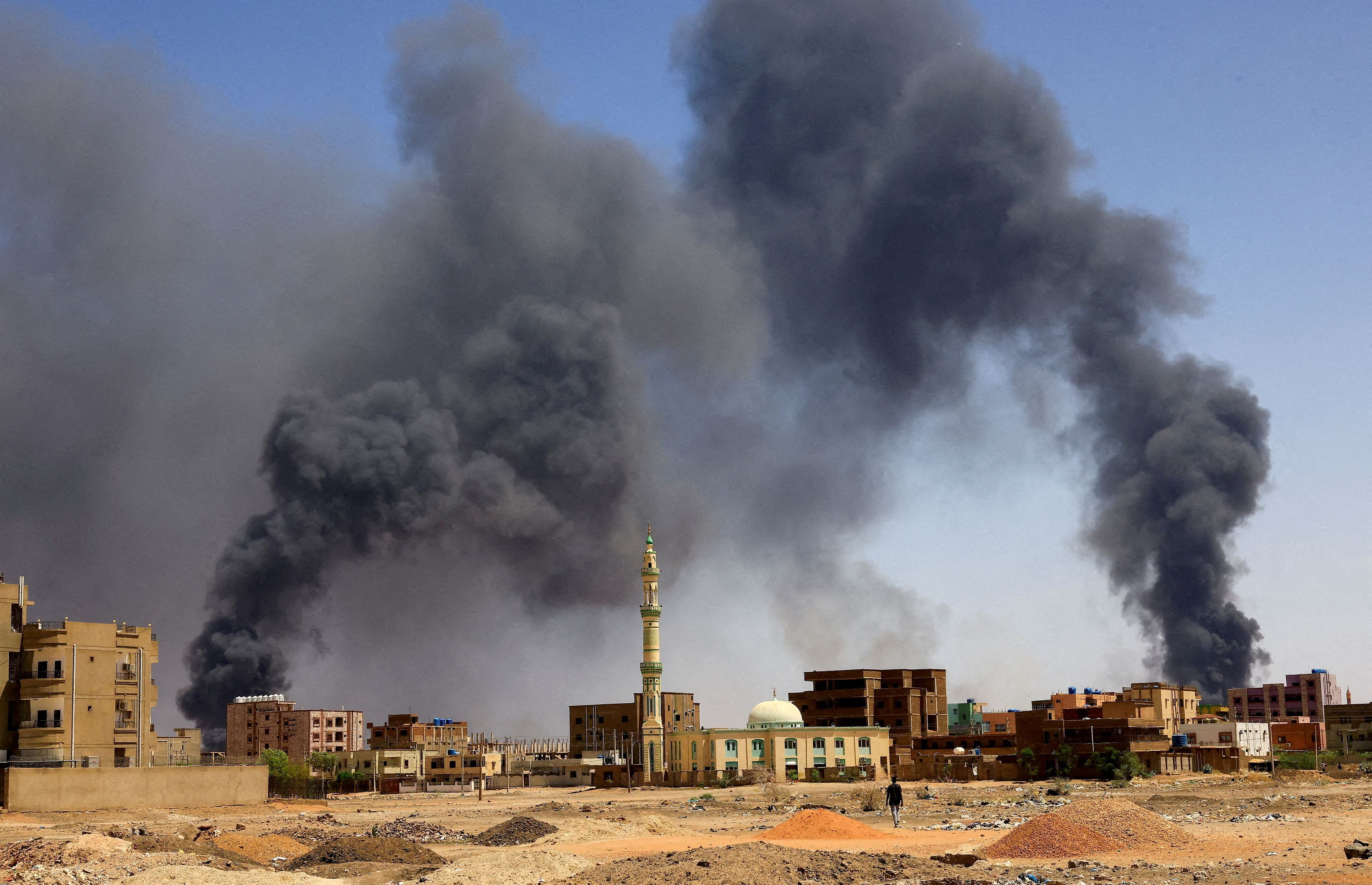
Air strikes and artillery pounded Khartoum on Friday after Sudan's warring army and Rapid Support Forces paramilitary failed to agree a ceasefire despite committing to protect civilians and allow humanitarian access.
A so-called declaration of principles was signed in Saudi Arabia late on Thursday after nearly a week of talks between the two sides, but neither has yet released statements acknowledging the deal.
Since clashing suddenly on April 15 the rival military factions have shown no sign they are ready to offer concessions to end fighting that has killed hundreds and threatens to pitch Sudan into a full-blown civil war.
"We were expecting that the agreement would calm down the war, but we woke up to artillery fire and airstrikes," said Mohamed Abdallah, 39, living in Southern Khartoum. The same was heard in neighboring Bahri.
Thursday's deal, the product of Saudi and US-brokered talks in Jeddah, includes commitments to allowing safe passage for civilians, medics, and humanitarian relief, and to minimize harm to civilians and public facilities.
US officials said on Thursday that the signing would be followed by negotiations on the details of securing humanitarian access, and a ceasefire of up to 10 days to facilitate those activities.
Mediators pushed the sides to sign the declaration of principles on civilian protections in order to reduce tensions because of continuing disagreement on a wider ceasefire, one of those involved in the mediation said.
"The two sides are quite far apart," a senior state department official said on Thursday, adding that they didn't expect full compliance to the principles.
Saudi Foreign Minister Faisal bin Farhan described the deal as a first step. "The most important thing is to adhere to what was agreed upon," he said on Twitter.
Previous ceasefire agreements have been repeatedly violated, leaving civilians to navigate a terrifying landscape of chaos and bombardment with failing power and water, little food and a collapsing health system.
The agreement committed the two sides to evacuating public and private property, including private homes, which residents have accused particularly the RSF of occupying. The RSF has denied these claims, blaming elements of the military and other armed groups.
Abuse condemnations
Western countries condemned abuses by both sides at a human rights meeting in Geneva on Thursday. "These are things they should be doing already without being told. They should get no credit for that," said Cameron Hudson of the Center for Strategic and International Studies, saying he doubted the RSF was in enough control of troops to enforce Thursday's deal.
"The parties must convey clear and unequivocal instructions to lower ranks," said the UN, African Union and regional orgainsation IGAD.
They called on both sides to "facilitate the safe passage of humanitarian assistance, the restoration of essential services, the withdrawal of forces from hospitals, and the respectful burial of the dead."
Many UN and other aid agencies have suspended aid to Sudan and in particular Khartoum, awaiting guarantees their stores and staff will be safe.
The World Health Organization has said at least 600 people have been killed and more than 5,000 injured in the fighting, but that real numbers are likely much higher.
The Health Ministry said at least 450 people were killed in clashes that erupted in clashes in West Darfur state.
Many have fled Khartoum and Darfur, uprooting 700,000 people inside the country and sending 150,000 as refugees into neighbouring states, according to U.N. figures.
"In order to alleviate the suffering of our people, this step needs to be transformed into a cessation of hostilities with clear mechanisms for implementation and monitoring," said civilian political leader Khalid Omer Yousif.
"And then, the rest of the steps will follow in order for our country to write a peaceful way out of this disaster," he added in a tweet.
Civilians are expected to participate later on in the talks, the U.S. state department official said.